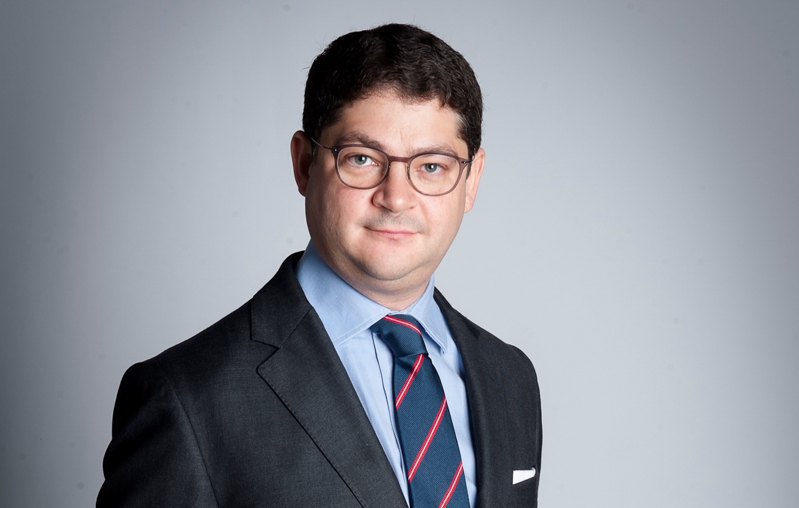
"We focus on an ideal scenario – rapid EU enlargement and Ukraine joining NATO"
President Emmanuel Macron has appointed you Special Envoy for Ukraine's Relief and Reconstruction. This position is unique to France, compared to other EU countries. Why did President Macron decide to create it in the midst of the war?
Indeed, France is the first among the G7 countries to appoint a special envoy for relief and reconstruction. My position represents France's desire to help Ukraine in both the short and long term. Right now, we want to mobilise all the forces within France, from businesses to local administrations and civil society, to support Ukraine in its EU membership prospects.
France wants to be a privileged partner of Ukraine. By the way, the US now has a similar position to mine. Biden has appointed Penny Pritzker as US Representative for Ukraine's Economic Recovery. We met in Washington and Brussels quite a few times.
Is a major reconstruction of Ukraine possible at all in the event of a ceasefire, a frozen conflict (which Putin craves so badly), i.e. when Russia remains an existential threat?
I think we need to be pragmatic and do as much as we can today. We should not set conditions for ourselves to start rebuilding. Of course, it is important for the security situation to stabilise. That is why it is our priority, together with European partners, to provide military assistance to Ukraine until it wins. But it is equally important to understand that whatever the future scenarios in terms of military advances and liberation of territories, the country must hold on today, and our goal is to help it.
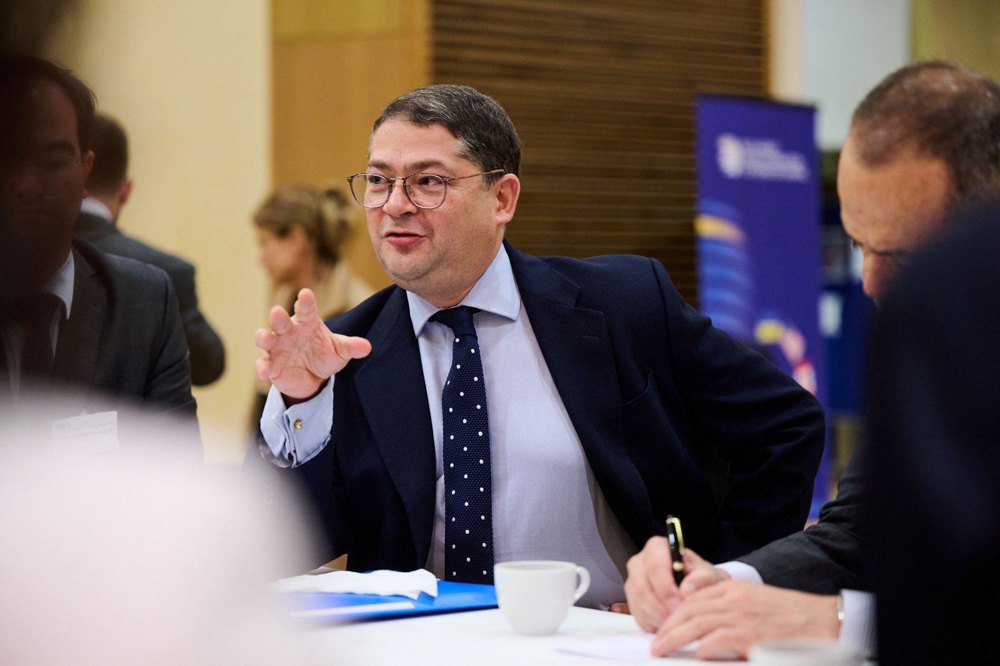
But is a full recovery possible if Ukraine is not a member of the EU and NATO, i.e., it does not have political, economic and security guarantees?
We focus on an ideal scenario that President Macron spoke about in Bratislava in June – rapid EU enlargement and Ukraine joining NATO. However, it should be noted that integration will take place in stages. The decision of the EU Council, which met on 14-15 December 2023, paved the way for negotiations on Ukraine's accession to the EU, which is a very important step.
As far as the step-by-step integration is concerned, we are already working on a set of guarantees that will reassure and attract private investors to work in Ukraine. We are discussing a pact for secure economic development with our Ukrainian partners. France is already offering 95% insurance coverage of military risks to French investors. This is an important positive signal. This shows that we are with Ukraine and provide guarantees for business to work even before Ukraine joins the EU and NATO.
We hear from various Western analysts that Ukraine needs a Marshall Plan. How do you feel about this idea and what should it look like for our country?
In my opinion, historical parallels have their limitations. Global coordination, collective assistance – this is an infrastructure close to the Marshall Plan. But the amounts are hardly comparable. Back then, it was about $13 billion (the equivalent of today's €150 billion - LB.ua), while today the estimates of the amount needed to rebuild Ukraine are much higher. In addition, the Marshall Plan did not include military assistance, whereas now it is an integral part of the plan. The approaches, however, are similar in a way that recovery is seen as an economic and social multi-vector reconstruction.
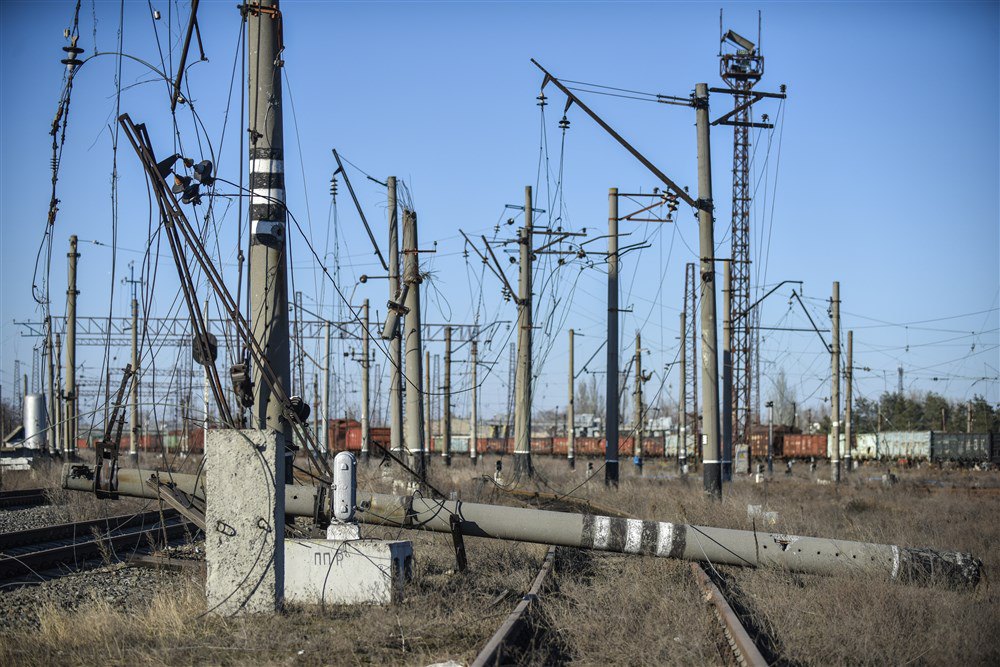
By the way, the Marshall Plan mandated its recipients not to support communism and the USSR. Should Ukraine also pledge not to maintain contacts with authoritarian states, including Russia, in the future?
The United States put forward the Marshall Plan in the context of geopolitical competition and the Cold War. By the way, the USSR could have received this assistance at the time (but Stalin refused - LB.ua). Today, the question is how to ensure that the aid is provided in exchange for reforms. That is, not just to give money, but to create conditions that to make it transformative. The Marshall Plan achieved this in a certain way since the Organisation for Economic Co-operation and Development was created at the time. Europe has been deeply transformed.
"Nothing will affect long-term assistance to Ukraine"
A new global market is emerging in the world - the recovery market. The US is already saying that after the war in the Gaza Strip is over, big money will flow there. The issue of Taiwan remains in limbo. In the future, will Ukraine have to fight a fierce battle for these resources?
We live in a world of geopolitical upheaval in many regions. President Macron and the Minister of Europe and Foreign Affairs have made it clear that nothing will affect our long-term support for Ukraine. We are thinking several years ahead and offering support in economic and political terms. Together with our European partners, we are working with this prospect in mind.
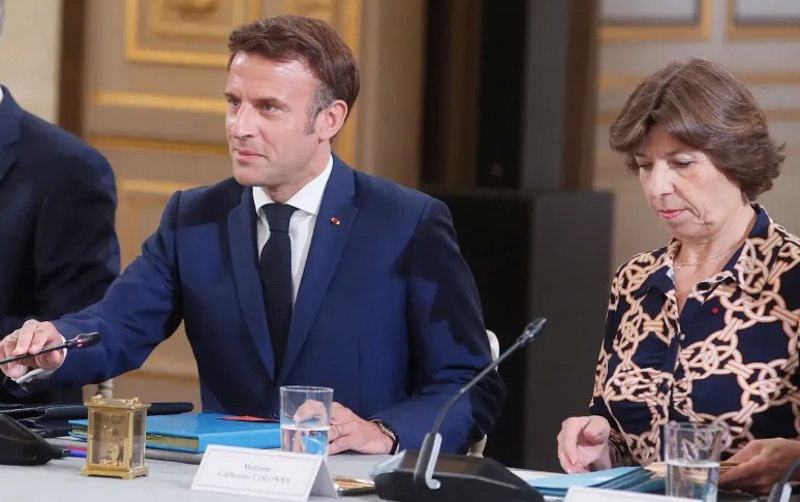
So, the situation in Gaza does not change anything for Ukraine?
It has an impact on the ambitions of our defence industry, in particular in terms of ammunition. Europe needs to think strategically, allocate more of its budget to military needs, so that our ambitions are realised not only in Ukraine but also in other regions of the world. We need to avoid a situation where in order to transfer weapons to Ukraine, they need to be taken away from other partners because there is not enough for everyone. Europe needs such defence production to be able to cope with several regional crises simultaneously.
How do you see Ukraine after the recovery? What key economic sectors should Ukraine develop?
We systematically work with the Ukrainian authorities. I visit Ukraine every two months and meet the Cabinet of Ministers in full. On the one hand, there is a short-term perspective with projects to develop water supply, energy, demining, and the healthcare system, including mental health.
In the long term, it is the transport system and high technology. We need to analyse and compare Ukrainian expertise with that of the EU. The Ukrainian industry and service sector will eventually be integrated into the EU, as happened in the case of Central European countries.
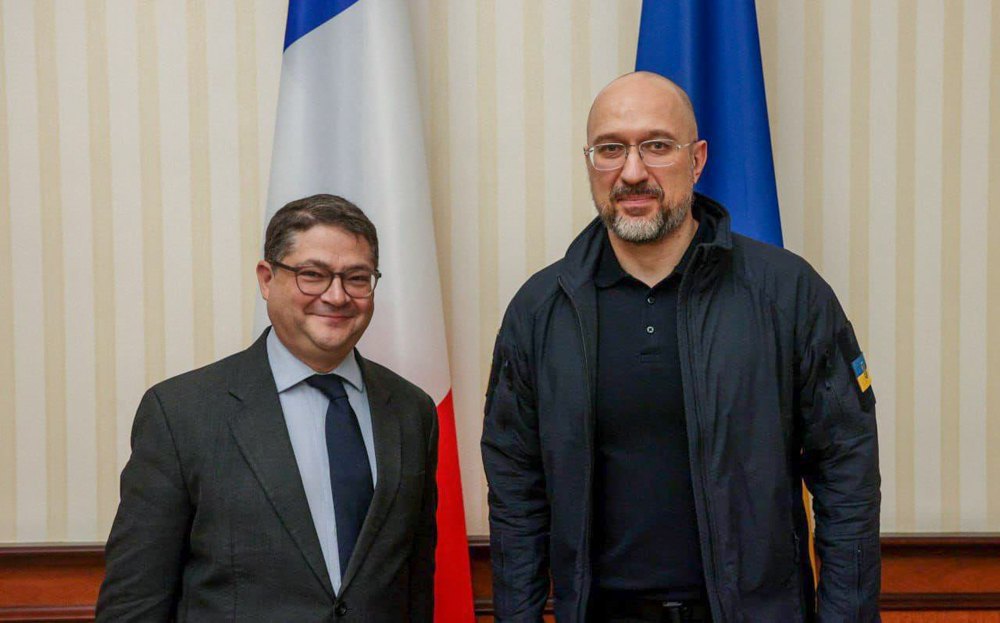
One of your initiatives is to provide expert support to Ukraine by sending French consultants to a number of Ukrainian ministries. What is the purpose of this?
This is happening on two levels. At the central level, we support Ukrainian ministries and the government in reforming the judiciary, setting priorities for attracting investment, and auditing. This is to ensure that, for example, the Ministry of Finance has all the tools it needs to control cash flow.
At the local level, we work with administrations in Kyiv, Lviv, Odesa, Kharkiv and other cities. We are developing a privileged partnership with Chernihiv Region. At this level, we are helping with establishing transparent administrative processes to hold tenders.
What is the best way to rebuild cities that have been virtually wiped off the map? For example, Mariupol. There have been different models in history: Hiroshima, Berlin, Dresden. What model would you suggest for cities like Mariupol?
Europe does have experience in this area. We know how to rebuild quickly, efficiently and strategically. It makes no sense to rebuild cities according to the Soviet model, which does not meet European environmental standards. Therefore, destroyed Ukrainian cities are an issue that requires planning.
We are already working on a master plan to imagine a city of the future in Ukraine that would meet European standards and make economic sense, as well as meet the needs of society. Many cities remain under Russian occupation, so of course we need to think in stages. Chernihiv is a city that was partially destroyed and which France is helping to rebuild thanks to a masterplan by Egis Group, which offered a strategic vision for the organisation of urban space.
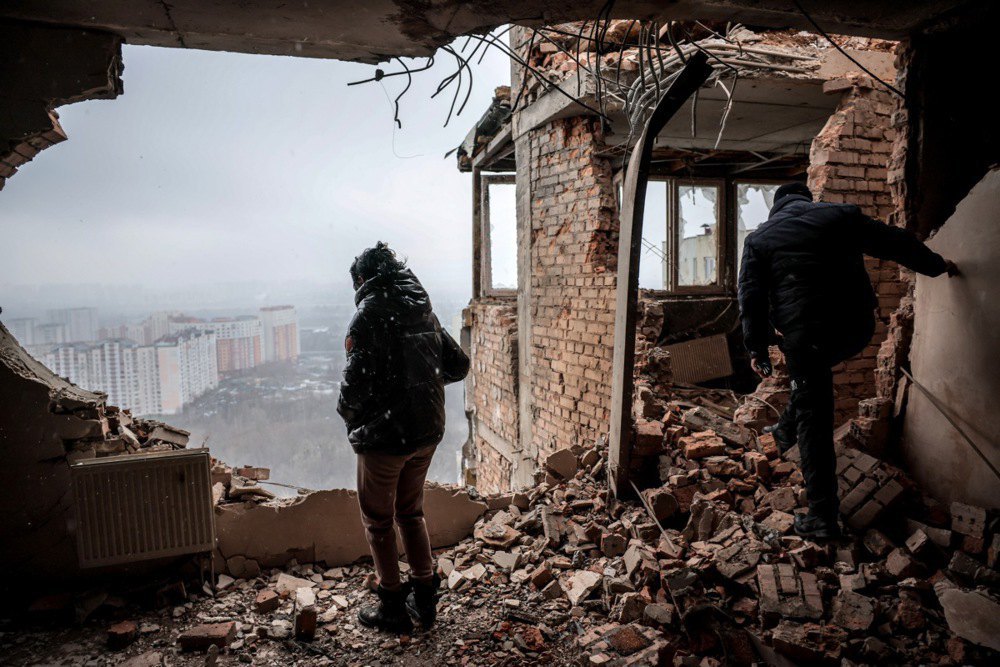
Will France be prepared to join the reconstruction of Mariupol?
France was already present in Mariupol, in particular in water supply projects. Unfortunately, all these investments have gone into oblivion. But we will be prepared to start all over again. The French Development Agency could develop municipal projects in Ukraine. It is an entity that can provide loans at the local level without government guarantees. This is a unique case among international development banks.
Local self-government in France has a lot in common with the Ukrainian system. Both of our countries are large, geographically divided into many regions, with a strong agricultural sector. Therefore, France's expertise can be useful to Ukraine. I always cite the example of Chernihiv, but we plan to move on, relying on this project as an example of successful development.
"If there is no compromise about 50bn for Ukraine among 27 EU states, we'll reach it among 26."
Leroy Merlin, Auchan, Total, Sanofi, 23 French companies in total, remain in Russia. President Macron has repeatedly gathered business representatives and asked them to leave the Russian market. Why wouldn't they?
Businesses make their own choices and build their strategy as they see fit. There are also a lot of French companies that have left Russia and lost a lot of money, such as Société Générale. Some of them stayed. Some American and German pharmaceutical companies also stayed. What we are responsible for at the government level is defining the parameters of sanctions (we are talking about the twelfth package), in particular at the European level, as well as monitoring their compliance.

Do you agree that Ukraine's recovery is impossible without sanctions against Russia remaining in place for some time after the war ends?
This will be discussed when the time comes. Right now, we are talking about imposing sanctions, strengthening them, and working with partners like Turkey to address the issue of sanctions being bypassed. We need to make sure that sanctions are actually adhered to, and that ways are not found to circumvent them. These are issues that we are already discussing, including in the context of the peace plan proposed by President Zelenskyy. We will discuss keeping the sanctions with our partners, taking into account the political situation at the time.
Will France be prepared to take on the role of leader in economic support and recovery of Ukraine if the US global position is shaken after the election?
I visited Washington recently where I had a lot of conversations with high-ranking officials. The issue of aid to Ukraine is being actively discussed, not only the amount but also the general approach to the issue. No matter who the future president is, Democrat or Republican, there are many political issues with regard to budgetary assistance to Ukraine. We will act depending on the situation. We must be prepared for any scenario.
We are honouring our part of the commitments. France has played an important role, and not just in financial matters. For example, we were the driving force in promoting the European future of Ukraine. There is, of course, financial assistance, for example, a €50 billion plan for the next four years. The EU cannot be the only financial donor to Ukraine however.

We want all 27 EU countries to vote for the €50 billion package on 1 February. But President Macron has made it clear that if there is no compromise on this among 27 EU states, we'll reach it among 26. I have no doubt that France will play a central role in this.
Apart from money, France is already playing a key role, as French companies are the first foreign employers of Ukrainians. And these companies remained in the country after 24 February. Tens of thousands of Ukrainians are employed in branches of French banks, in the distribution and agrarian sectors. This is a very specific contribution to ensuring the resilience of the Ukrainian economy.
"French companies are highly interested in Ukraine"
Some 40% of Ukraine's territory is mined. By now, France has provided Ukraine with eight SDZ mine clearing robots. Are any new deliveries planned, as these are obviously not enough?
France provided support with underwater demining training. There is an exchange programme for deminers who came from Ukraine to Marseille. France will contribute €5 million to the HALO Trust, a non-governmental organisation, toward a risk awareness programme, technical support, training and equipment for Ukrainian deminers. There is an Alsatian company that won a tender with Ukraine for the production and supply of eight demining robots and eight amphibious vehicles that will enable tanks to cross rivers. These are very concrete examples. For French companies, assistance to Ukraine opens up opportunities for business development.
Few investments come to Ukraine, all of them are risky. I know that France has become a kind of innovator here. You have mentioned the 95% insurance coverage. How exactly does this system work?
This mechanism is coordinated by the state investment bank Bpifrance, which reviews applications. For example, a few days ago they approved a guarantee for a French seed producer. It concerns the risk of destruction of the company's assets associated with military operations. If the risk materialises, the French state will cover the damage from its budget at the level of 95%.
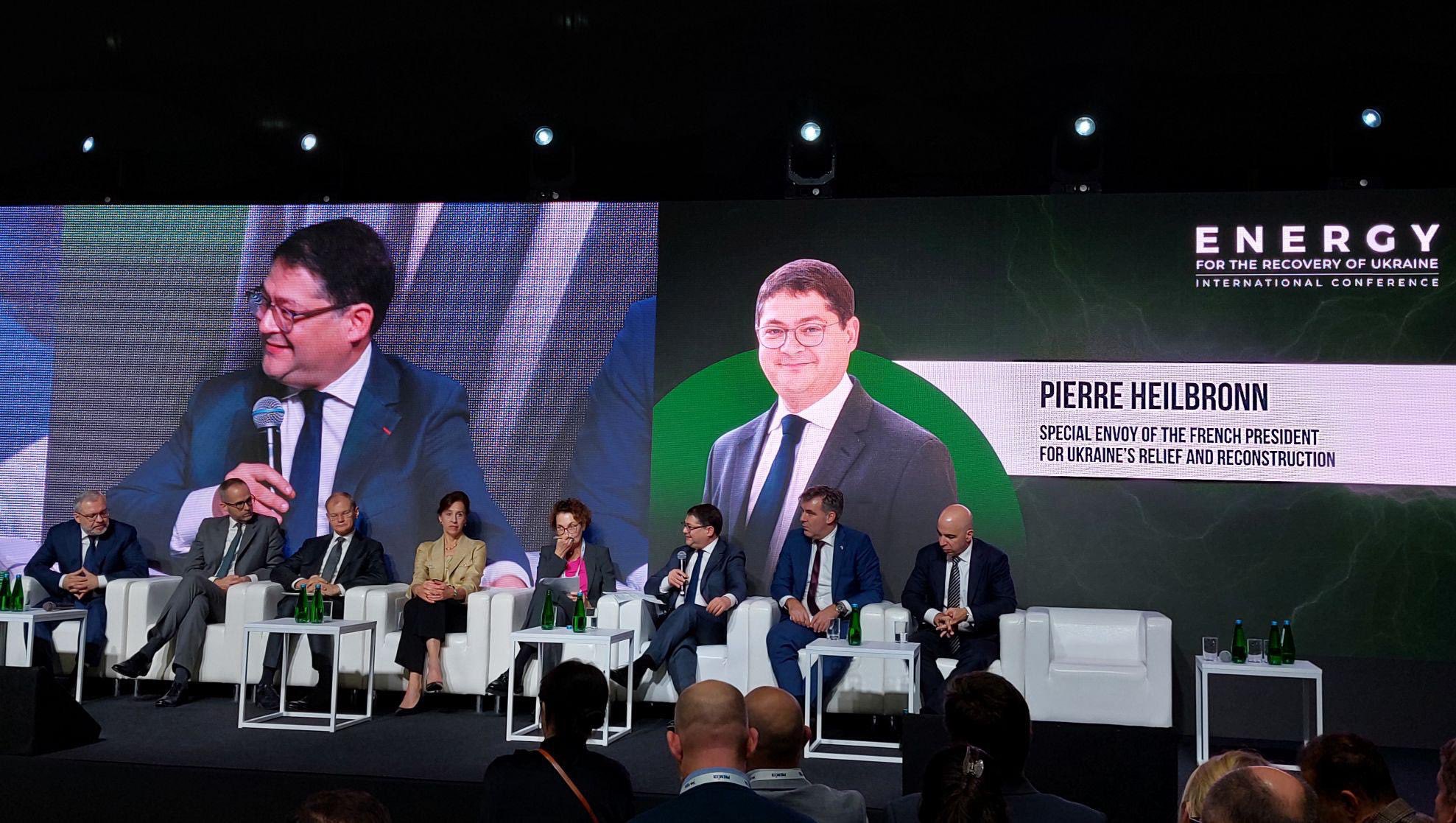
Not all countries can offer this level of coverage, but we are promoting the idea to develop a pan-European insurance mechanism. All this can happen after the approval of the EU's €50 billion Ukraine Facility for four years. As part of this package, we will be able to talk about other sectors and the grey area that is currently the insurance of goods in transit. Currently, there is no mechanism for insuring raw materials when they are delivered to a factory in Ukraine. That is, once the goods leave Poland, all the way to the final location in Ukraine, they are not insured.
A separate issue is the insurance of cargo shipped via the Black Sea. The risk of cargo loss in case of damage to a ship is much higher than in case of damage to a train or truck. I regularly meet French businesses in different regions of France that are planning business projects in Ukraine to find out what obstacles they face on their way and how we can help them to open up faster.
Last year, Emmanuel Macron gathered 700 small and medium-sized French companies at a conference dedicated to Ukraine to support the country in the winter. How many of these companies still work in Ukraine?
The level of engagement is very high. There are very innovative projects, for example, Neo-Eco, a company from Lille, recycles garbage and even rubble in Ukraine, from which it then builds new housing. This is an example of a circular economy. By the way, such innovative projects receive funding from the French research fund for the private sector. The interest of French companies in Ukraine is very high. In November, I attended the Rebuild Ukraine exhibition in Warsaw, and the French pavilion featured about 30 companies, which is twice as many as at the beginning of the year. This attests to the growing interest of our companies.
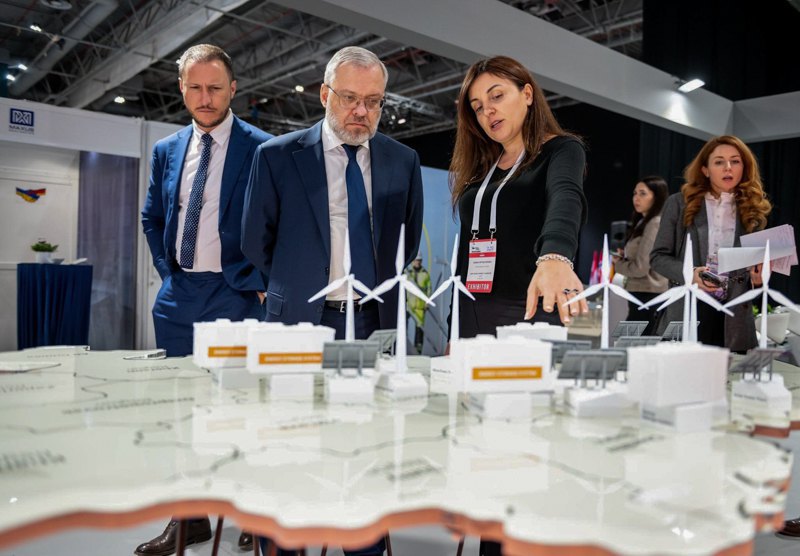
Is France ready to hold another such conference?
After this big meeting, we moved on to work by sector. We are now talking to each sector separately. This complements the format of large conferences, although a big meeting will also need to be repeated in the future.
Businesses need to have a clear understanding of the available financing instruments, guarantees, and the level of government and regional support. Risks vary greatly by sector. The computer technology market does not face the same risks as, for example, a steel producer. Companies that have long been working in Ukraine can play the role of mentors.
France is a European leader in the nuclear energy sector. Zaporizhzhya NPP is occupied and partly damaged. Will France, with its expertise, be prepared to help rebuild ZNPP?
Certainly. I talked a lot about this with Energy Minister Herman Halushchenko. Obviously, France has no spare parts and equipment for Soviet-style reactors. However, we have provided equipment that allows the Ukrainian reactors to operate in a safe mode, particularly during the winter.
In terms of energy mix, France is one of the most similar countries to Ukraine in the world. Most of its energy is nuclear and the focus is on renewable energy in the next 20-30 years. France has the same ambitions. This opens up opportunities for us to cooperate on the construction of reactors of new generation.
Enedis is already working on modernising the power distribution network in Ukraine. French companies, such as Orano and Framatome, have expertise in the nuclear fuel cycle, and they are thinking about what they can do in Ukraine. Of course, this is not a short-term perspective. On the one hand, we are thinking about how to help Ukraine overwinter, provide it with generators and transformers, and on the other hand, we are thinking about the future.

"France will build 100 mental health centres in Ukraine"
One of France's important achievements is the launch of modular hospitals in Ukraine. What place does healthcare take in French-Ukrainian cooperation?
This is a very important sector for us. In the coming weeks, France will allocate €12 million through the Expertise France agency for healthcare in Ukraine. On the one hand, we are talking about the supply of equipment. Cancer treatment is one of the key sectors. We are about to send 30 mammography systems to Ukrainian hospitals. In Ukraine, there is a great demand for cooperation in the healthcare sector. The issue of medical cooperation was raised on the sidelines of the Summit of First Ladies and Gentlemen organised by Mrs Zelenska in September, and the largest number of representatives of medical institutions came from France.
Israel has been an important partner for Ukraine in the treatment of children with cancer. With the war in the Gaza Strip, the context has become complicated. Could France become a partner for Ukraine in this regard?
Certainly. We are working on a multi-level partnership. On the one hand, we supply the equipment I've mentioned. On the other hand, we teach doctors. There is cooperation between specialised medical institutions. Our other priority is mental health. We are planning to build 100 mental health centres in Ukraine, partly with the help of the Council of Europe Development Bank and partly with the €12 million package I've mentioned earlier. This is not only a health issue, but also an economic one, as it will motivate people to return to the labour market.
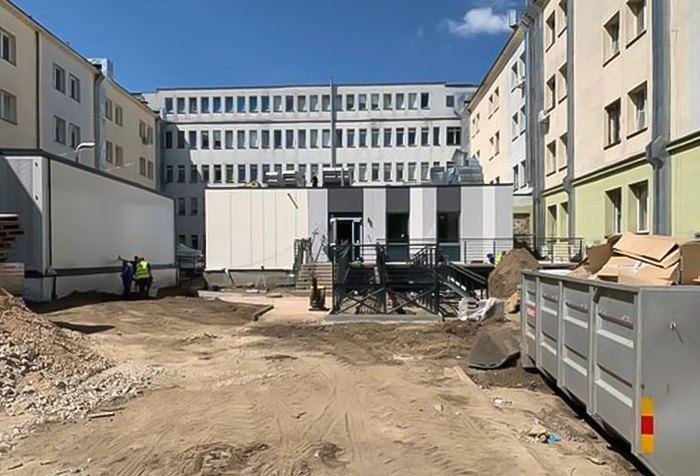
Almost 200 hospitals across the country have been destroyed...
Yes, many hospitals have been destroyed, and France plans to contribute to their reconstruction. Modular hospitals, like the one in Borodyanka, are just one example. In addition to the state, foundations are also involved in funding. For example, Servier made a generous donation (€8.2 million - LB.ua) to rebuild the Chernihiv District Hospital through the UNITED24 platform.
UNICEF estimates that 1,300 schools in Ukraine have been damaged as a result of Russian aggression. At the same time, Ukraine is becoming a platform for innovation. A school in Lviv is being built using a 3D printer, it is the first such school in Europe. Is France ready to join in scaling up such projects?
France, together with the non-governmental humanitarian organisation ACTED, has allocated €12 million for education needs of Chernihiv Region. The goal is to reconstruct schools to European standards and provide them with shelters, as President Zelenskyy insisted. This will allow for a return to offline education.
A branch of the French Development Agency is to open in Ukraine. Can you confirm this information and tell us what this organisation will focus on?
The agency is already partially represented in Ukraine through Proparco and Expertise France. Proparco supports the private sector. By 24 February [2022], they had launched wind turbines in Ukraine, unfortunately, they were destroyed. Expertise France has opened an office in Ukraine with 20 employees and will grow. A programme to reform the judiciary has also been launched. All this will take place on the basis of the Expertise France office, which is subordinated to the French Development Agency. Depending on our further ambitions, we will develop it.
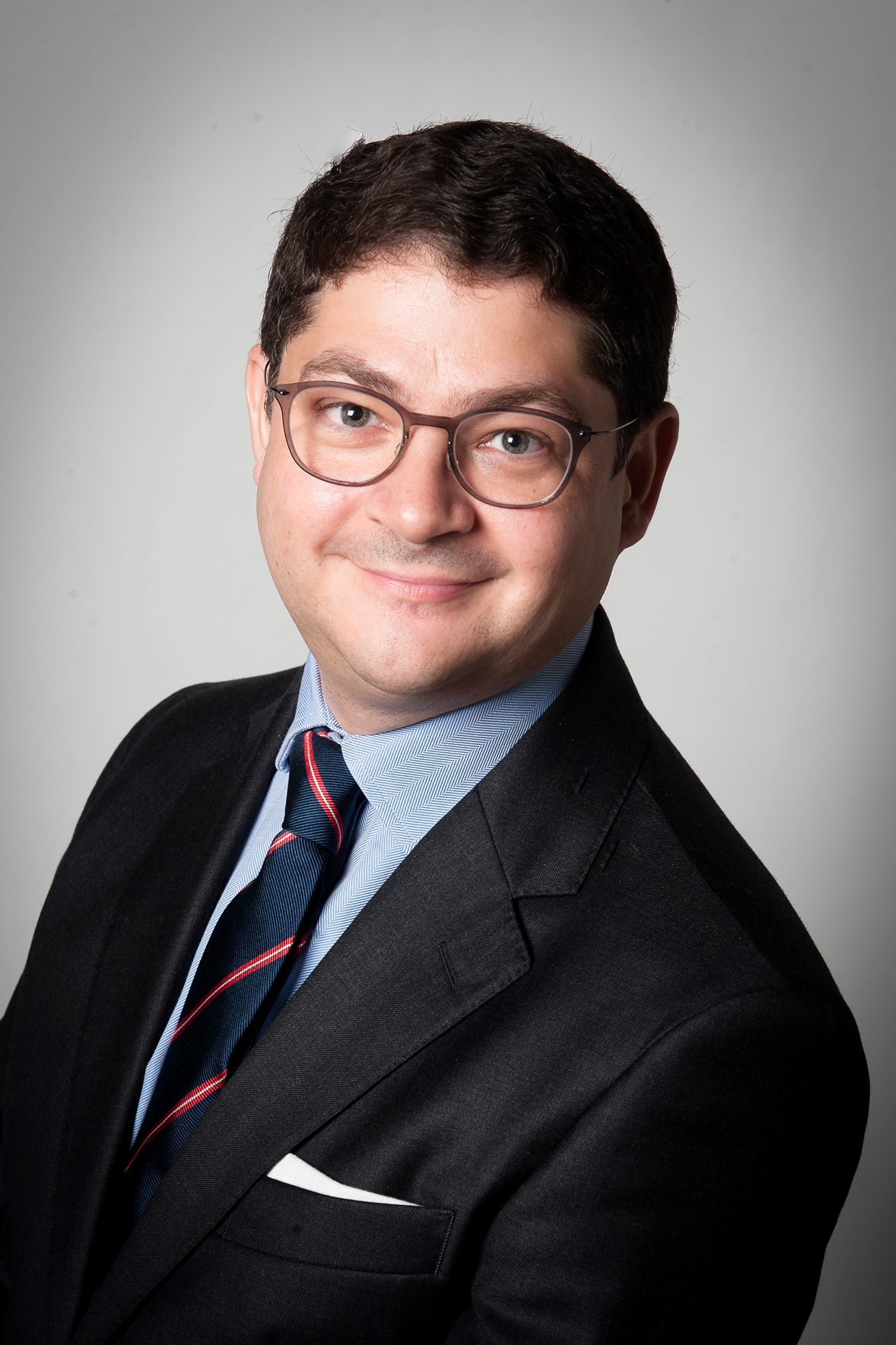
You regularly visit Ukraine, and your next visit is planned for the beginning of 2024. Emmanuel Macron has not been to Ukraine since June 2022. Does the French president plan to visit again?
He will come again when his visit can be useful. The date has not been planned yet but will need to take into account the EU calendar. On 1 February, we hope to receive news on financial decisions (allocation of the EU assistance – LB.ua). Our work should also contribute to establishing a special relationship between France and Ukraine through projects that are to be finalised in the coming weeks.









